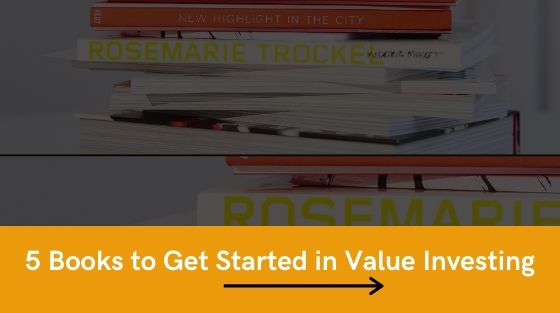Top 5 Value Investing Books To Get Started: Value investing is regarded many times as the best and the most straightforward strategy in the stock market. The concept is simple – Find the real value of a company and invest in the undervalued firms to profit in the long term. However, remember that the profits might take time to notice. Understand the full concept of value investing here.
The best method to learn something in a short span is by reading books. It is the compilation of one person’s life experiences and learning. And for value investors, here in this article, we’ll share the best, top-notch books to understand value investing.
However, it is also essential to know the history behind the method too. It would make your view clearer. Read the brief value investing history in the purest form here.
5 Top Value Investing Books
1. The Intelligent Investor: Value Investing Books
Warren Buffet started his value investing journey after reading this book. Benjamin Graham, the author of this book and the mentor of Buffet, is the father of investing.
The book contains researched and analyzed principles like defensive v/s aggressive investor, gambling v/s investing, and different concepts like Mr. Market & margin of safety.
The book is a must-read for all the existing and potential value investors, and it is regarded as the bible of value investing.
2. The Little Book of Value Investing: Value Investing Books
Another exciting read by Christopher H. Browne is a long 600-page book. The book is an advanced and technical version to explain the concept of value investing.
The book covers concepts such as diversifying shares, preferring value stocks over growth, insiders’ buying and selling, the margin of safety, etc. The exciting part is that the author uses the analogy of shopping malls to explain the investing method.
For example, at a supermarket, there are both expensive as well as cheap items. Now the investor should decide whether he wants to go for fancy, i.e. overvalued stuff, or cheap, i.e. undervalued items.
3. The Art of Value Investing: Value Investing Books
The book by John Heins and Whitney Tilson is a comprehension of various interviews of the best value investors. ‘The Art of Value Investing: How the World’s Best Investors Beat the Market’ answers all the questions which a potential investor has in mind.
Both the authors are experts in the investing field, and they have compiled the learning of top investors in this book.
A potential trader shall be able to understand the risks, advantages, common mistakes, and many more things.
4. Value Investing: Value Investing Books
From Graham to Buffet & Beyond: One of the leading arguers of value investing, Bruce Greenwald, along with his business school colleagues, has written this masterpiece.
Bruce is a teacher now, and in this book, he tries to explain the fundamental principle and why the investing method is working above the time, consistently.
The books also provide an insight into the profiles of some successful value investors, including Michael Price, Mario Gabellio, and Warren Buffet. There are several case studies to back the arguments too.
5. Margin of Safety: Value Investing Books
This 1991 written book on value investing includes several timeless principles for helping investors. Seth Klarman writes the book and tries to explain the theory behind why the investing strategy works. It also works in teaching the philosophy behind value investing.
Further, the book shows how to think deeply while investing, to understand the rules, and why & when these rules work. You would also know when and why these rules don’t work.
The Bottom Line
Investing and trading both are confusing endeavors that have the potential to create or destroy one’s wealth. Thus, initial learning is of utmost importance; not because you will earn better, but at least you will make fewer mistakes.
The internet is a fast medium. But, if you want to get detailed, analyzed, and authoritative knowledge, then books are fast. However, one need not go for hard copies only; audiobooks and softcopies do the same thing. Study the above books to get a right hand on value investing and make sure to reread them when applying the concepts.



